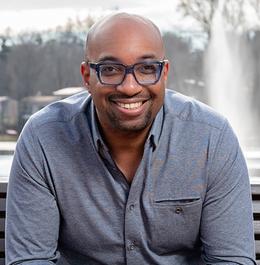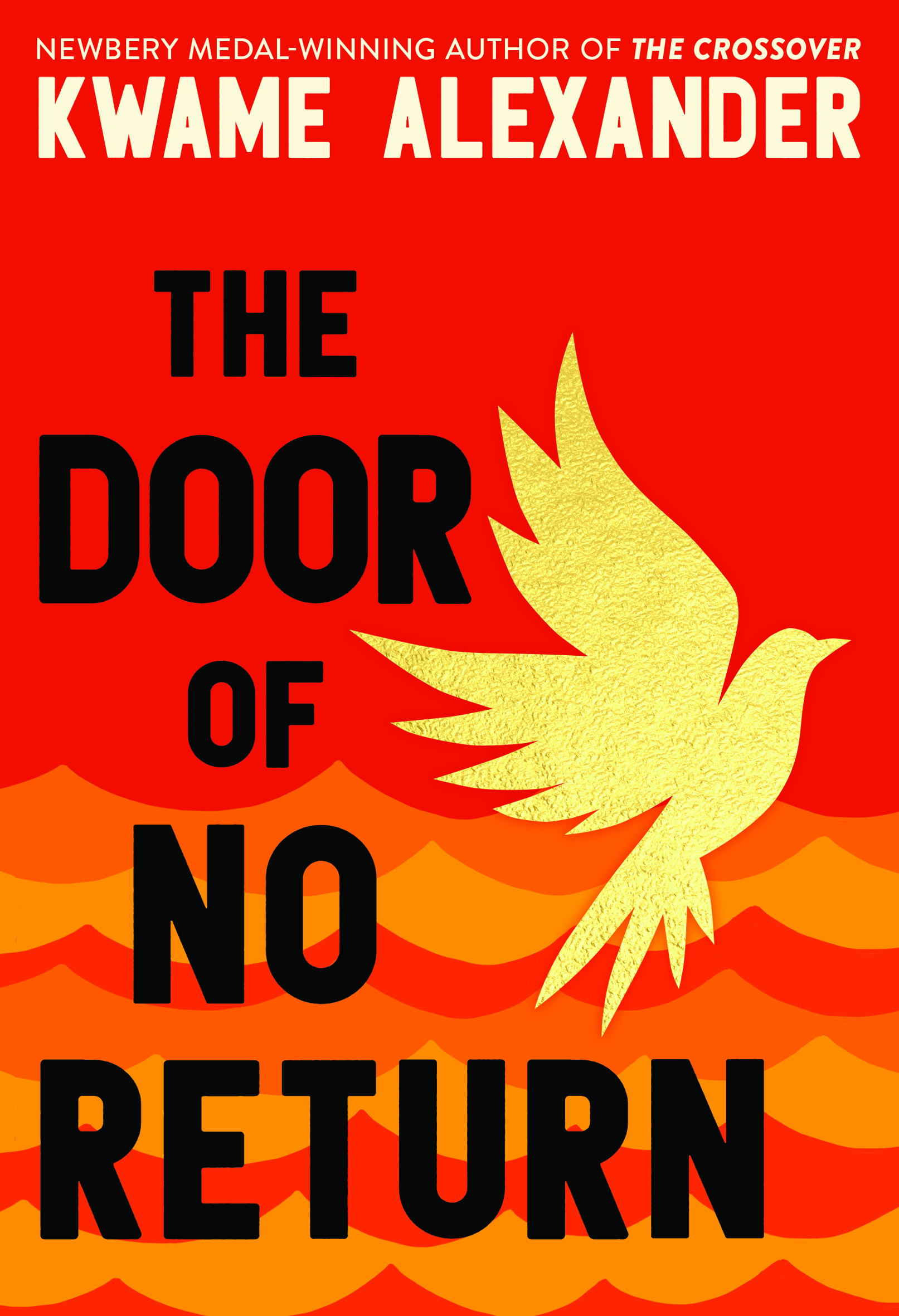
|
|
| (Portia Wiggins Photography) | |
Kwame Alexander, award-winning author and poet, was born in Manhattan and currently resides in London. He is the author of the 2015 Newbery Medal-winner The Crossover (soon to be a Disney+ series) and the Newbery Honor book The Undefeated. He's been a frequent visitor to Ghana, where he's built a library and health clinic. Ghana is also the setting of his 2022 middle-grade novel, The Door of No Return (Little, Brown Books for Young Readers). Here, Alexander discusses history, opening doors for children and what he's working on now.
In a note, you wrote that The Door of No Return was a "hard story to write but one that is needed to be told." Could you explain why this is an important story to read?
I believe the way we become empathetic, connected, full human beings is through understanding not only our own stories but the stories of those around us. I feel like this book is one that is going to enhance, increase, inspire and empower the imaginations of young people. Because how often do we get "normal" or "regular" tales of Africa?
You also included a quote from Ralph Waldo Emerson: "Be an opener of doors." How do you hope you've done that with this book?
I think it is up to the reader to decide if I've accomplished this. When I think of opening a door, I think of jazz music. You have all these people onstage creating a moment--musical magic--together. They all have to understand what their role is and be able to listen to each other. I hope The Door of No Return does for readers what jazz music does: unites us. It connects us and makes us feel something that we didn't feel before.
 Speaking of opening doors, you visited the Cape Coast and Elmina castles. What was it like?
Speaking of opening doors, you visited the Cape Coast and Elmina castles. What was it like?
What I felt being in there is unspeakable and indescribable. This is why it was the hardest book I've ever written--how do you write this for children so that they don't leave feeling depressed, destroyed or in a dark place? I try to uplift them and so I had to try to figure out how to do that when you are in a place that makes you feel uneasy, uncomfortable, scared. I did my best to put all the feelings in the book.
The slavery aspect of the story isn't a huge part of the book.
I didn't mention the word slavery in the book, and I try not to mention it in conversations and interviews because it doesn't happen until page 302. When anyone talks about my novel, I don't want to talk about slavery. I want to talk about everything that happens up until page 302. I wrote this book to talk about our life--so that people can get an understanding that we are not slaves, we are human beings. The point of this book is not to center the experience of Black people in this tragic way.
How important is it to do the work of learning your own history, and history in general?
One of my mantras in life is, "I am the greatest. Not because I am better than anyone but because no one is better than me." I try to move through life with a certain level of confidence that I matter, and no one can define for me who I am and how much I am worth. I know my worth. I was shown, told and sang to, lectured and immersed in a household that honored and paid tribute to human beings that have tried to make the world a better place for society. Many of those human beings were Black people. My philosophy on life has come directly from the influence of my parents. What I like to call "matter-of-fact Blackness." We laugh. We love. We excel. We hope. We fail. We die just like everybody else.
You have a picture book coming out in January titled An American Story, illustrated by Dare Coulter. Tell us about this new project.
An American Story is for second grade and up, and I would say it could almost be a sequel to The Door of No Return. My point in writing An American Story is to show how unprepared teachers are at teaching slavery and how afraid they are to teach it because they're unprepared. I feel like I have figured out how to use my creativity to tell these stories in a way that will allow people to tell them with relative ease. If you read An American Story, it may feel a little uncomfortable, but your students can help you through it. I genuinely believe it's the best book I've ever written--even though I say that about every book I write. --Kharissa Kenner, children's librarian, Bank Street School for Children

